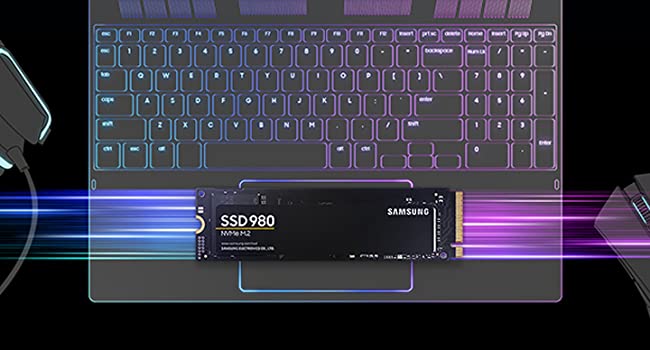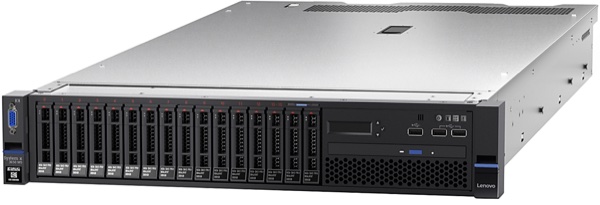
The Role of Brand in SSD Price: Is It SSD Price Worth Paying More?
Introduction
The influence of the brand on the SSD price is a pivotal factor to consider when contemplating the purchase of storage devices. In an ever-expanding market, where options abound, the question arises: “Is it justifiable to invest more in a well-established brand, or are non-branded SSDs a cost-effective alternative?” To answer this question effectively, it is imperative to delve into the multifaceted aspects that the brand brings to the SSD market and weigh whether the advantages warrant the higher cost. This exploration explores the intricate relationship between brand recognition, performance, reliability, support, and budget considerations to determine whether paying a premium for a branded SSD is a prudent choice.
The Role of Brand in SSD Price: Is It Worth Paying More?
The role of the brand in SSD price is an important consideration when purchasing storage devices, but it’s just one of many factors to weigh when making a decision. Whether it’s worth paying more for a branded SSD depends on several factors, including your specific needs and priorities.
Performance and Reliability:
- Brands: Established brands invest in research and development to produce SSDs that offer consistent and reliable performance. They also conduct rigorous quality control testing to ensure the drives meet certain standards.
- Non-branded: Non-branded or lesser-known SSDs may not have the same level of investment in R&D and quality control, which can lead to variations in performance and reliability.
Warranty and Support:
- Brands: Recognized brands typically offer longer warranties (often 3 to 5 years) and comprehensive customer support. This means you’re covered for a longer period if something goes wrong with the SSD.
- Non-branded: Non-branded SSDs might come with shorter warranties and less robust customer support, which can be a concern if you encounter issues.
Custom Firmware and Features:
- Brands: Some brands develop custom firmware and features tailored to their SSDs. These can include improved error correction, power management, and encryption features that enhance the drive’s functionality and performance.
- Non-branded: Non-branded SSDs may lack these custom features, potentially impacting performance and security in specific use cases.
Brand Recognition:
- Brands: Recognized brands are often associated with trust and reliability. People are more likely to trust products from companies with a history of delivering quality technology.
- Non-branded: Lesser-known brands might not inspire the same level of confidence, but that doesn’t necessarily mean their products are subpar.
Budget Constraints:
- Brands: Branded SSDs, especially those from well-known companies, tend to be more expensive. This can be a limiting factor if you have a tight budget.
- Non-branded: Non-branded SSDs can often be more affordable, making them attractive options for those on a budget.
Specific Use Cases:
- Brands: For high-performance tasks like gaming, video editing, or professional workloads, branded SSDs might offer superior performance, making them worth the investment.
- Non-branded: Non-branded SSDs can be perfectly adequate for everyday tasks or budget-oriented builds, where top-tier performance is not a primary concern.
Reviews and Recommendations:
- Brands: Established brands often have a plethora of reviews and recommendations available online, making it easier to assess their track record and performance.
- Non-branded: It can be more challenging to find reviews and recommendations for lesser-known SSD brands, so thorough research is crucial.
Future Compatibility:
- Brands: Recognized brands are more likely to provide firmware updates and long-term support for their SSDs, ensuring compatibility with new hardware and software.
- Non-branded: Non-branded SSDs might not receive the same level of ongoing support, which could be a concern for future system upgrades.
Refurbished SSD in Gaming Laptops: Performance on a Budget
Refurbished SSDs in gaming laptops can offer a cost-effective way to improve performance without breaking the bank. SSDs (Solid State Drives) are known for their speed and reliability compared to traditional HDDs (Hard Disk Drives). When looking for refurbished SSDs in gaming laptops, here are some considerations:
Performance Boost:
Upgrading from an HDD to an SSD will provide a significant performance boost in terms of boot times, game load times, and overall system responsiveness. The speed of the SSD can greatly enhance your gaming experience.
Capacity:
When considering an SSD, make sure it has sufficient capacity for your gaming needs. Gaming laptops typically come with various SSD sizes, so choose one that suits your storage requirements. Ideally, aim for at least a 500GB SSD, as modern games can be quite large.
Type of SSD:
There are different types of SSDs, with SATA SSDs and NVMe SSDs being the most common. NVMe SSDs are faster than SATA SSDs, but both are considerably faster than traditional HDDs. If budget allows, opt for an NVMe SSD for even better performance.
Refurbished vs. New:
Refurbished SSDs can be a cost-effective option, but it’s essential to buy from reputable sellers or manufacturers that offer warranties. New SSDs often come with longer warranties and the assurance of unused components.
Laptop Compatibility:
Ensure that the refurbished SSD you’re considering is compatible with your gaming laptop. Check the laptop’s specifications and consult with the manufacturer or seller if needed.
Warranty and Reliability:
Pay attention to the warranty period for the refurbished SSD. Some refurbished SSDs come with shorter warranties than new ones. A reputable seller should provide a warranty and ensure that the SSD has been thoroughly tested for reliability.
Data Migration:
If you’re replacing your laptop’s existing storage drive with a refurbished SSD, you’ll need to transfer your data. Consider whether you have the technical skills to do this or if you need professional assistance.
Budget Constraints:
Refurbished SSDs are often more budget-friendly than new ones, which can help you allocate more of your budget to other gaming laptop components like the GPU or CPU.
Conclusion
In conclusion, the role of the brand in SSD price is indeed a significant factor that should be carefully considered when making purchasing decisions. The choice between a branded and non-branded SSD ultimately depends on a multitude of factors, including your specific needs, budget constraints, and performance expectations.
Branded SSDs often come with several advantages, including a proven track record of performance and reliability, longer warranties, robust customer support, and potentially unique features and firmware enhancements. These benefits can provide peace of mind and ensure a smoother overall experience, especially for users who demand high performance or need dependable storage for critical data.
On the other hand, non-branded SSDs can be more budget-friendly and still deliver acceptable performance for everyday computing tasks. For those with limited financial resources or less demanding usage scenarios, these options can represent a cost-effective solution.



